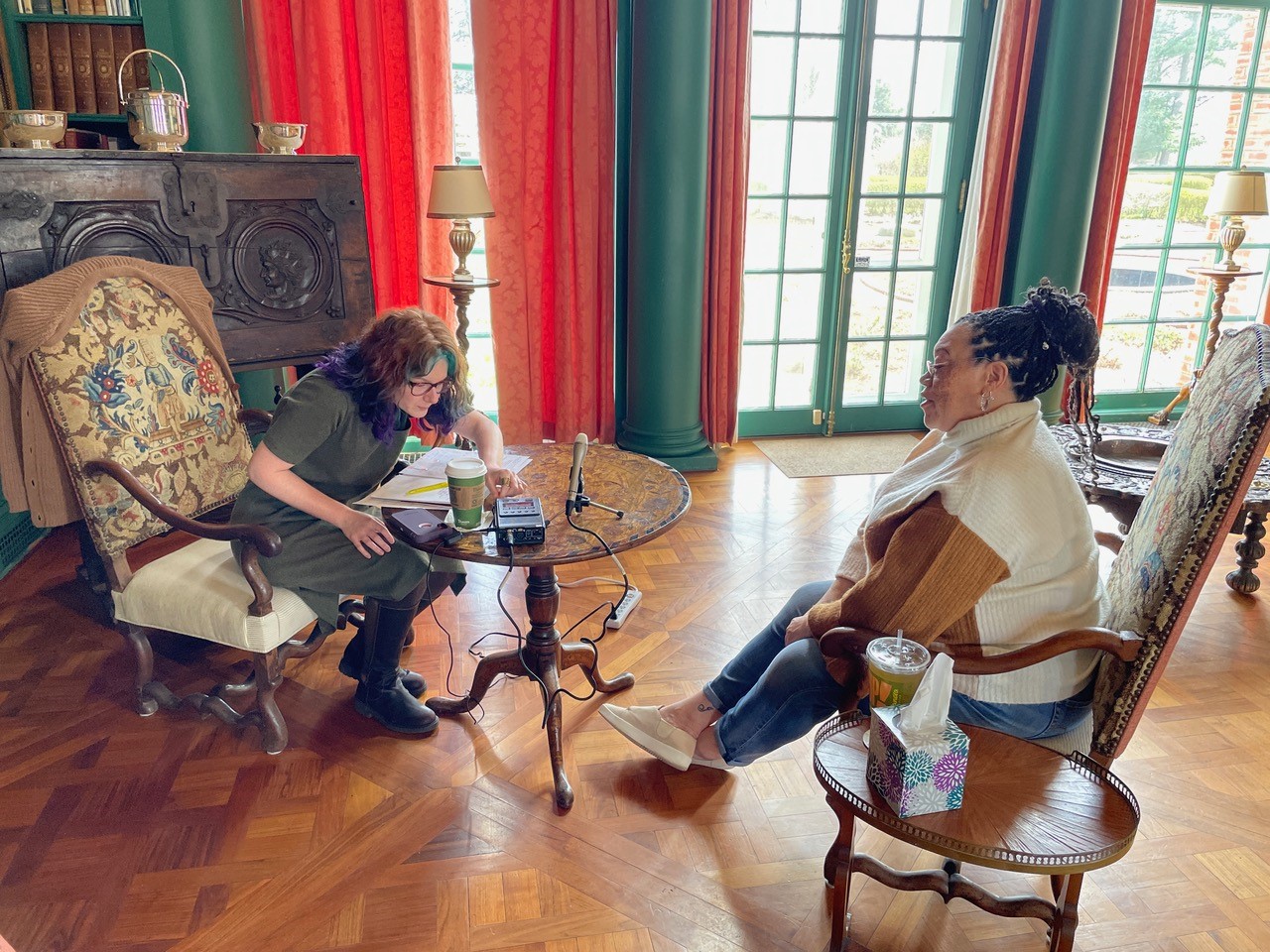What is Public History?
We define public history as the practice of historical research, teaching, and interpretation that largely occurs outside of the academy. Public historians work at historic sites, museums, historical societies, government agencies, archives, and in the private sector. Public historians care for historical documents, artifacts, and images. A major aspect of the field is working with the public and with local practitioners to create historical projects. Public history makes the past accessible, intelligible, and relevant for all members of society.

Katie Cross-Gibson records an oral history with Brigitt Johnson, a descendant of Louisa, an enslaved woman who lived at Oxmoor Farm in Louisville.
We provide a broad training in the field of public history. Students learn the skills of historical research, writing, and interpretation aimed at public audiences. They take courses that investigate the intellectual origins of public history, its relationship to traditional historical scholarship, and the challenges facing public historians today. Focusing on these topics establishes the boundaries of the field and helps students begin building professional identities. They study historiography and apply scholarly arguments to their work as public historians. Like all historians, they need to be able to find information, think historically, and communicate clearly and effectively.
Louisville and Kentucky provide fertile labs for public history work. Louisville is a mid-sized city encompassing southern and midwestern elements; it offers an urban setting for the study of race, class, gender, and sexuality. The city has a robust tourist economy and its vibrant network of cultural institutions provides ample opportunities for internships, instruction, and post-graduate employment. Nationally recognized institutions such as the Filson Historical Society, the Frazier History Museum, Historic Locust Grove, The Farnsley Moreman House, and others, allow students to learn from experienced professionals and observe high-quality programming. Strong relationships with institutions throughout Kentucky and southern Indiana offer additional opportunities.
Graduates of our programs have obtained employment with leading historical organizations, including the Kentucky Historical Society, the White House Historical Association, the Filson Historical Society, and the Frazier History Museum. Others work for private sector consulting firms specializing in exhibit design and environmental review services. Continuing professionalization and the rapid growth of public history as a segment of the historical profession provide strong indications of future growth. If you are passionate about history and eager to learn how to apply historical skills and knowledge in unconventional ways, we urge you to consider our programs!
